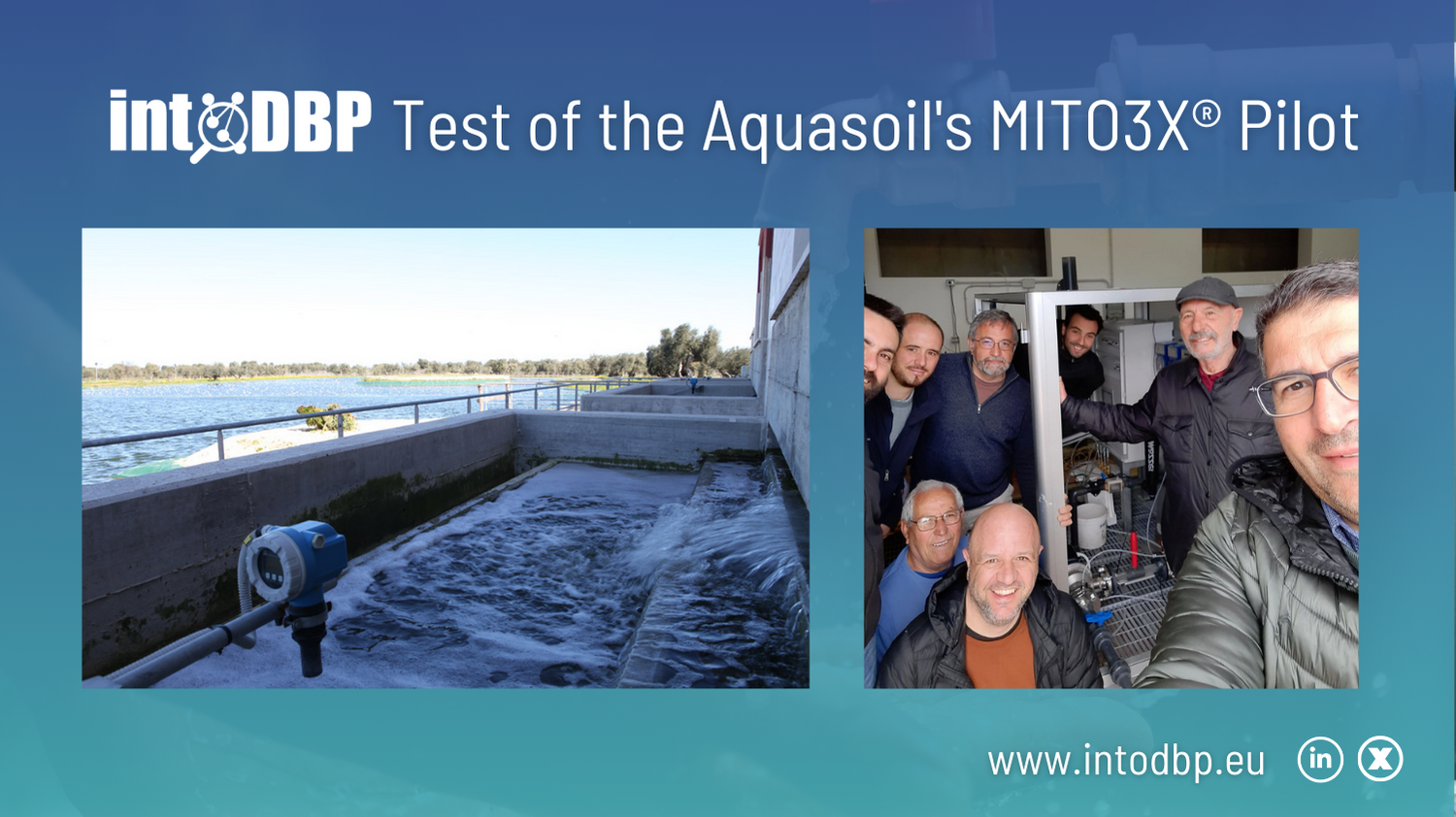Over the last week of April 2024, intoDBP partners met in the Castellana Grotte site, in the Italian region of Puglia, to test the MITO3X® pilot system for side-stream and in-line chloramine production in drinking water. Equipped with advanced sensors, the MITO3X® is now ready to head to the Madrid case study site managed by Canal de Isabel II.
The partners involved in the test were: AQUASOIL SRL, Università di Catania, Canal de Isabel II and the Catalan Institute for Water Research (ICRA).
The pilot system features fluoro-absorbance sensors for process control and two UV-VIS sensors to optimize final disinfection using chloramines. The primary activities of this pilot include:
- Installation of MITO3X®: The unit includes sensors to regulate and optimize the production of monochloramine for efficient disinfection.
- Investigation and Optimization: The system will investigate and optimize monochloramine formation while maintaining disinfection efficacy and minimizing the formation of disinfection by-products (DBPs).
This pilot is part of the intoDBP project, an EU-funded initiative aimed at developing, testing, scaling up, validating, and benchmarking innovative strategies and tools to protect catchments and minimize human exposure to DBPs. The project also focuses on optimizing disinfection efficacy under current and future climate conditions, providing globally applicable solutions.
As the MITO3X® pilot moves to Madrid, the project moves forward in its goals of minimizing DBP exposure without compromising water safety.



